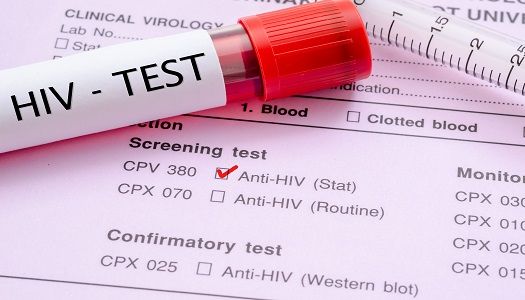Article
Not Enough HIV Screenings in People with Severe Mental Illnesses
Author(s):
Severe mental illness is tied to a significant increased risk of HIV.

People with certain mental illnesses may be up to 15 times more likely to have the human immunodeficiency virus (HIV), but they aren’t getting tested for the virus that much more than the general population, according to a new study from the University of California, San Francisco (UCSF).
Data have indicated that 1.8% to 6% of people with severe mental illness have HIV. The US Centers for Disease Control and Prevention (CDC) found that 0.4% of Americans have HIV. This imbalance can at least be partially tied to the fact that severe mental illness can lead people to engage in risky behavior. “This includes engaging in unprotected sex with HIV positive partners of unknown HIV status, injecting drugs, using substances in the context of sexual activity, and episodes of sexual violence,” first author, Christina Mangurian, MD, MAS, of UCSF’s Department of Psychiatry, explained in a news release.
The researchers examined 56,895 Medicaid records in California from October 2010 to September 2011. The patients ranged from ages 18 to 67 and had been prescribed at least one antipsychotic medication. Mental illnesses included bipolar disorder, schizophrenia, and major depression with psychosis.
Over the course of the study, 6.7% of the patients had undergone HIV testing. Through self-reported data, it was found that 5.2% of California residents were tested.
More people with mental illness were tested, but not by a large enough margin, given the increased HIV risk they face, the researchers said.
Race was a strong predictor of testing. Asians and Pacific Islanders were 53% and African Americans were 82% less likely to be tested for HIV compared to Caucasians. In addition, men were 32% less likely to be tested when compared to women.
There was some good news in the findings. People with drug or alcohol use disorders were more likely to be tested for HIV. That’s a positive since substance abuse puts people at risk for infection.
The strongest predictor of HIV testing, the researchers wrote in Psychiatric Services, was the utilization of non-psychiatric medical care. Those who received such care were twice as likely to be tested.
“Previous studies have found that people with severe mental illness die up to 25 years earlier than the general population,” Mangurian said. “This is a missed prevention opportunity to detect HIV early in the course of illness.”
It has been recognized that early death in this population is typically from heart disease, tied to anti-psychotic drugs’ increased risk of obesity, diabetes, and high blood pressure. However, other diseases like HIV contribute to the mortality rate, the team noted.
The majority of people with severe mental illness were not tested for HIV during the one-year study. While the CDC does not specifically say that annual HIV tests are necessary for the general population, but testing is recommended for those who inject drugs and for men who have sex with men.
The researchers noted that compliance to antiretroviral therapies (ART) was not an issue among the population.
“People with severe mental illness often have low rates of primary care use, but do seek care at community mental health care clinics,” said senior author, James Dilley, MD, of UCSF’s Department of Psychiatry and the UCSF Alliance Health Project. “As such, we believe this is an excellent opportunity for community psychiatrists to help promote their patients’ health by making HIV testing a part of their care.”
The study, “Low Rates of HIV Testing Among Adults With Severe Mental Illness Receiving Care in Community Mental Health Settings,” was published in Psychiatric Services. The news release was provided by the UCSF.
Related Coverage:
Breakthrough Discovery in AIDS-Related Dementia




